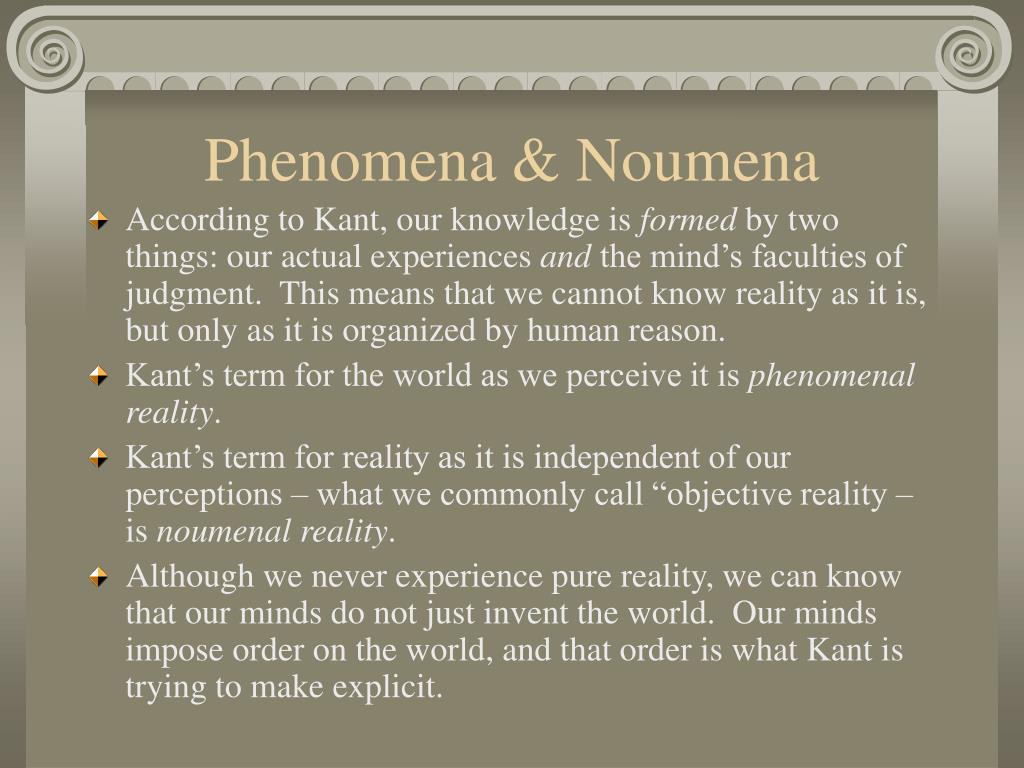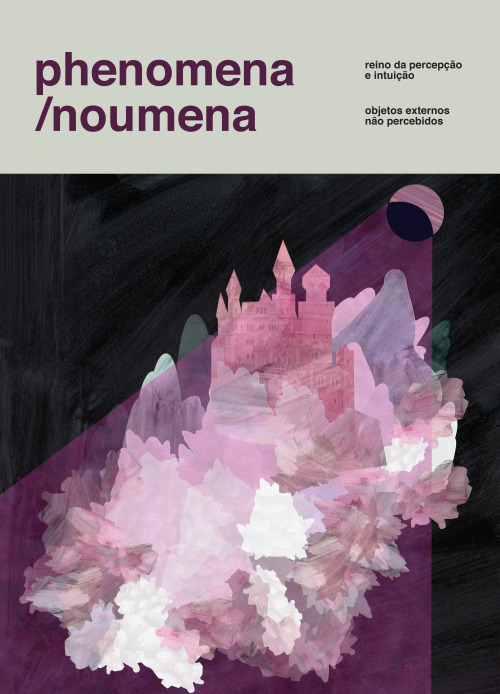
Saving Earth Britannica Presents Earth’s To-Do List for the 21st Century.Britannica Beyond We’ve created a new place where questions are at the center of learning.100 Women Britannica celebrates the centennial of the Nineteenth Amendment, highlighting suffragists and history-making politicians.
Phenomena and noumena how to#

Kant229 indicates that reason which connects us directly to. Although the objective rules may be the same in each case, the subjective idea of causal connection can lead to different deductions. understanding and sensibility beyond their limits. The former examines the notions of 'inner sense' and 'self-affection' as they pertain to the phenomenal self. According to Kant228, transcendental illusion is the result of applying the.

The final two chapters of the dissertation consist of closer studies of the concepts of the 'phenomenal' and 'noumenal' selves respectively. The new theory of the existence, with the corporeal phenomena of the universe, the abstract noumena of the existence, and the continuous creation formula inv. Stepping onto an aeroplane in Hong Kong and stepping off.

A noumenon is the thing in itself, as it exists. Kant's express view therefore does not, pace Allison, require the identification of the thinking subject, with the 'phenomenal' or 'noumenal' selves. Phenomena and noumena A phenomenon is the appearance of a thing, as it seems to our senses. The activity of thinking is thus conceptually distinct from, but ontologically dependent upon, the transcendental subject to which it belongs. It is then argued that the activity of thinking, which is represented by the 'transcendental unity of apperception' or 'I think', is attributable to the noumenal self in the negative sense, or transcendental subject. The defense begins by applying the dual-aspect reading of the phenomena/noumena distinction to the self, which is necessary to give the view initial plausibility.

The dissertation presents an interpretation and defense of Kant's express view of the self against commentators such as Allison. Commentators such as Henry Allison reject Kant's express view as inconsistent with the awareness of oneself as 'thinking subject', however, since the latter is an awareness of the activity of thinking, while 'phenomena' and 'noumena' are concepts of things. According to this view, the 'subject' that serves as the ground of the a priori conditions of experience must therefore be understood either as the phenomenal or noumenal self. Kant's express view in the first Critique is that the self, like other objects of experience, can be considered either through the conditions of experience as a phenomenon, or as it is independently of these conditions as a noumenon. In the philosophy of Kant, an object as it is perceived by the senses, as opposed to a noumenon. In his critical philosophy, Kant considers the 'subject' to be the source and ground of the a priori conditions of experience, but says exasperatingly little to elucidate this crucial notion. Phenomenon An occurrence, circumstance, or fact that is perceptible by the senses. Kant's conception of the self: Applying the dual-aspect reading of the phenomena/noumena distinction to the self There are thus four contrasts between noumena and phenomena, corresponding to the four pairs of concepts of reflexion.


 0 kommentar(er)
0 kommentar(er)
